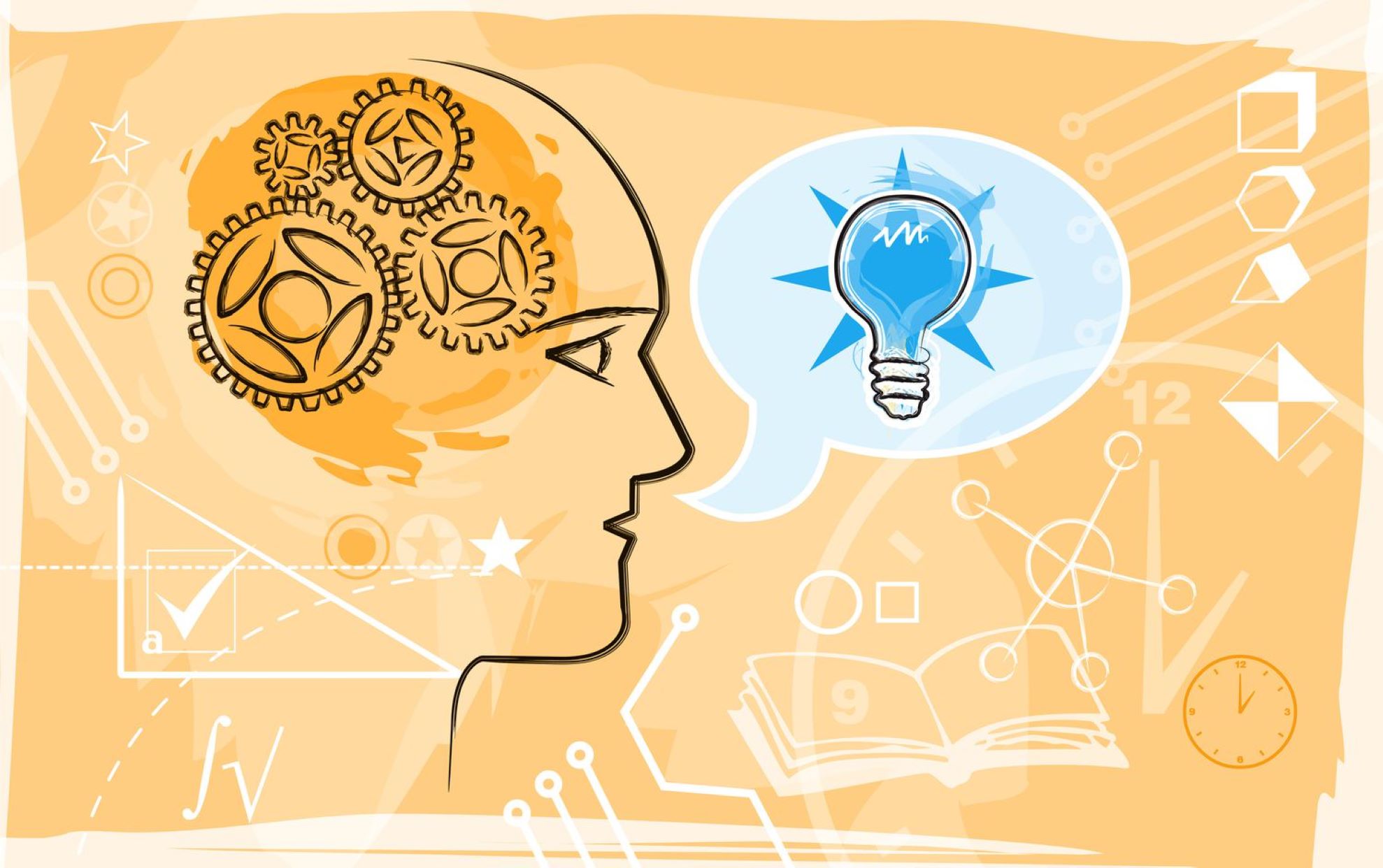
IQ tests have long been used as a standard measure of an individual’s intelligence quotient, providing insights into their cognitive capabilities and problem-solving skills. These tests assess various cognitive abilities such as logical reasoning, spatial awareness, numerical proficiency, and verbal comprehension.
In this article, we will delve into 19 fascinating facts about IQ tests, shedding light on their history, accuracy, and impact on society. From debunking common misconceptions to exploring the correlation between IQ and academic success, we will explore the intricacies of these tests and their significance in our modern world.
Whether you’ve taken an IQ test yourself or are simply curious about the science behind measuring intelligence, this article will provide you with a comprehensive and engaging look at the world of IQ testing.
Key Takeaways:
- IQ tests measure intelligence relative to others in the same age group, but they don’t capture the full spectrum of human intelligence. Factors like creativity and practical skills are not fully assessed.
- While IQ tests can predict academic performance to some extent, they should not be the sole determinant of a person’s capabilities or potential. It’s important to consider a range of factors and assessments.
The IQ test was invented in 1905.
The IQ test, also known as the intelligence quotient test, was developed by psychologist Alfred Binet and physician Theodore Simon in Its purpose was to identify children who may need extra educational support.
There are different types of IQ tests.
IQ tests come in various forms, such as the Stanford-Binet Intelligence Scale, Wechsler Adult Intelligence Scale, and Raven’s Progressive Matrices. Each test measures different aspects of intelligence, including verbal, non-verbal, and abstract reasoning abilities.
IQ tests measure intelligence relative to others in the same age group.
IQ scores are calculated by comparing an individual’s performance to that of their peers within the same age category. The average IQ score is set at 100, with scores higher or lower indicating above-average or below-average intelligence, respectively.
IQ tests are not foolproof measures of intelligence.
While IQ tests provide insight into cognitive abilities, they do not capture the full spectrum of human intelligence. Factors such as emotional intelligence, creativity, and practical skills are not fully assessed by IQ tests.
IQ tests have been criticized for cultural bias.
Some argue that IQ tests favor individuals from certain cultural backgrounds, as they may contain questions or concepts that are more familiar to specific groups. Efforts have been made to develop culturally fair IQ tests to address this concern.
IQ is not fixed and can change over time.
IQ scores are not static and can be influenced by various factors, including education, life experiences, and cognitive development. With training and practice, individuals can improve their IQ scores.
Mensa is a society for high IQ individuals.
Mensa is an exclusive organization that accepts members who have scored within the top 2% on IQ tests. It provides a platform for intellectually gifted individuals to connect and engage in stimulating discussions and activities.
The average IQ score is around 100.
The majority of people fall within the average range, with an IQ score of approximately Scores above 130 are considered highly gifted, while scores below 70 are indicative of cognitive impairment or developmental delay.
IQ tests can predict academic performance to some extent.
Research has shown a correlation between IQ scores and academic achievement. Higher IQ scores tend to be associated with better educational outcomes, although other factors such as motivation and effort also play a significant role.
IQ tests have been used controversially in eugenics movements.
In the past, IQ tests were exploited by some proponents of eugenics to justify discriminatory practices and promote selective breeding. It is important to maintain ethical standards and use IQ tests solely for constructive purposes.
IQ tests can be useful in identifying specific learning disabilities.
In addition to measuring overall intelligence, IQ tests can help identify specific cognitive weaknesses or learning disabilities, such as dyslexia or ADHD. This information can guide educators in providing appropriate support and accommodations.
Cultural and socioeconomic factors can influence IQ scores.
Individuals from disadvantaged backgrounds or marginalized communities may face barriers to educational opportunities, which can impact their IQ scores. It is essential to consider these factors when interpreting IQ test results.
Intelligence is a complex and multifaceted concept.
IQ tests capture only a fraction of human intelligence. There are various types of intelligence, including emotional intelligence, social intelligence, and creative intelligence, which are not fully measured by traditional IQ tests.
IQ tests are widely used in academic and employment settings.
IQ tests are commonly administered in educational institutions and workplaces for selection purposes. They can provide valuable insights into an individual’s cognitive abilities and potential for success in certain fields.
The Flynn effect suggests that IQ scores are increasing over time.
Studies have shown a gradual increase in average IQ scores over the generations, known as the Flynn effect. This phenomenon suggests that environmental and societal factors play a role in shaping intellectual development.
IQ tests are not exclusive to adults.
IQ tests are administered to people of all age groups, including children and adolescents. Specialized tests have been developed to assess the intellectual abilities of younger individuals.
Critics argue that IQ tests oversimplify intelligence.
Some experts argue that intelligence is a multifaceted concept that cannot be adequately captured by a single test. They emphasize the importance of considering other factors, such as creativity, problem-solving skills, and social intelligence.
IQ tests can be influenced by test anxiety.
Test anxiety can negatively impact IQ test performance. Individuals who experience high levels of stress or pressure during the examination may not perform at their optimal cognitive level.
IQ tests should be used as one tool among many.
While IQ tests can provide valuable insights, they should not be the sole determinant of a person’s capabilities or potential. It is crucial to consider a range of factors and assessments when assessing someone’s abilities.
Conclusion
In conclusion, IQ tests are fascinating tools that can provide insights into human cognition and intellectual abilities. We have learned several key facts about IQ tests through this article. They are standardized assessments designed to measure intelligence, with scores representing a person’s cognitive abilities compared to others in their age group. IQ tests typically measure various cognitive domains, including verbal and non-verbal skills. It is important to note that IQ tests are just one aspect of assessing human intelligence and should not be considered as the sole determinant of a person’s intellectual capacity. Furthermore, IQ test scores can be influenced by various factors, such as educational background and cultural differences. Overall, IQ tests serve as valuable tools for understanding human intelligence, but they should be interpreted with caution and in conjunction with other assessments and considerations.
FAQs
1. How accurate are IQ test scores?
IQ test scores can provide a reasonably accurate measure of a person’s cognitive abilities within a specific context. However, it is essential to remember that intelligence is a complex and multifaceted trait that cannot be fully captured by a single test.
2. Can IQ be improved?
While IQ is partly influenced by genetics, intellectual abilities can also be developed and improved through education, training, and exposure to new experiences. Continued learning, problem-solving, and critical thinking can contribute to enhancing cognitive functioning.
3. Can IQ tests measure emotional intelligence?
No, IQ tests primarily measure cognitive abilities and do not directly assess emotional intelligence. Emotional intelligence refers to the ability to recognize and manage emotions, which is a separate construct from cognitive intelligence.
4. Are IQ tests culturally biased?
Some argue that IQ tests can be culturally biased, as they may reflect the experiences, knowledge, and values of a particular culture. Efforts have been made to reduce cultural biases in IQ tests, but it is crucial to interpret scores in the context of an individual’s background and cultural differences.
5. Are there different types of IQ tests?
Yes, there are several types of IQ tests, including the Stanford-Binet Intelligence Scales, Wechsler Adult Intelligence Scale (WAIS), Wechsler Intelligence Scale for Children (WISC), and Raven’s Progressive Matrices. Each test assesses intelligence in slightly different ways.
6. Are IQ test scores fixed for life?
No, IQ test scores are not fixed for life. While there is some stability in IQ scores over time, they can still be influenced by various factors, such as education, experiences, and neuroplasticity, which refers to the brain’s ability to change and adapt throughout one’s life.
Was this page helpful?
Our commitment to delivering trustworthy and engaging content is at the heart of what we do. Each fact on our site is contributed by real users like you, bringing a wealth of diverse insights and information. To ensure the highest standards of accuracy and reliability, our dedicated editors meticulously review each submission. This process guarantees that the facts we share are not only fascinating but also credible. Trust in our commitment to quality and authenticity as you explore and learn with us.


